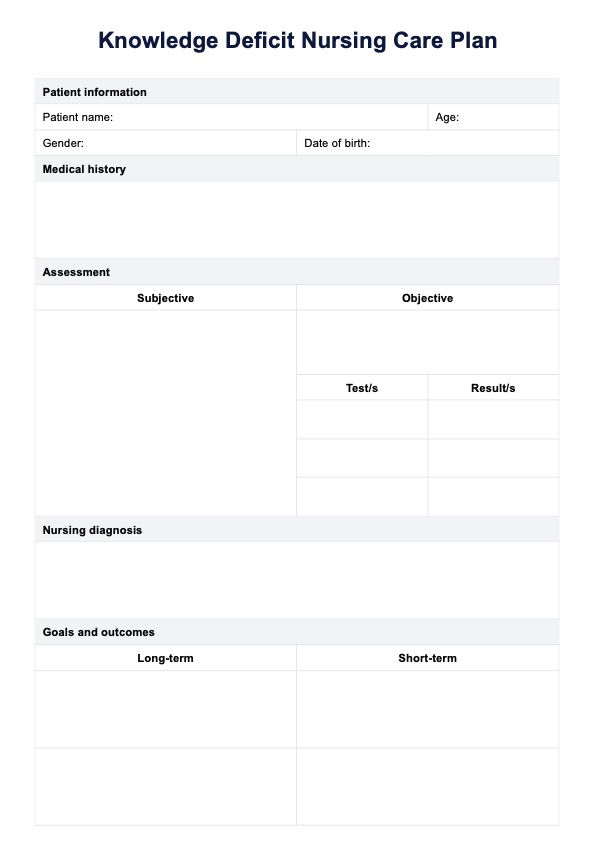The Knowledge Deficit Theory posits that a lack of information or understanding can hinder individuals from making informed decisions regarding their health and well-being. In nursing, this theory guides practitioners in identifying gaps in patient knowledge and developing educational strategies to empower patients through information.

Knowledge Deficit Nursing Care Plan
Explore our comprehensive Knowledge Deficit Nursing Care Plans guide, which includes free templates and examples to enhance patient education and care.
Knowledge Deficit Nursing Care Plan Template
Commonly asked questions
The nursing diagnosis for knowledge deficit is typically stated as "Deficient Knowledge" and is used when a patient demonstrates a lack of understanding about a specific topic related to their health condition or treatment. This diagnosis can be further specified by identifying the area of knowledge that is lacking, such as medication management, disease processes, linking to community resources or self-care techniques.
Deficient knowledge-related nursing interventions include assessing the patient's current understanding and identifying specific knowledge gaps. Educational strategies may involve providing verbal explanations, written materials, demonstrations, and interactive discussions tailored to the patient's learning style. Follow-up sessions may also be scheduled to reinforce knowledge and address any new concerns that arise.
EHR and practice management software
Get started for free
*No credit card required
Free
$0/usd
Unlimited clients
Telehealth
1GB of storage
Client portal text
Automated billing and online payments











